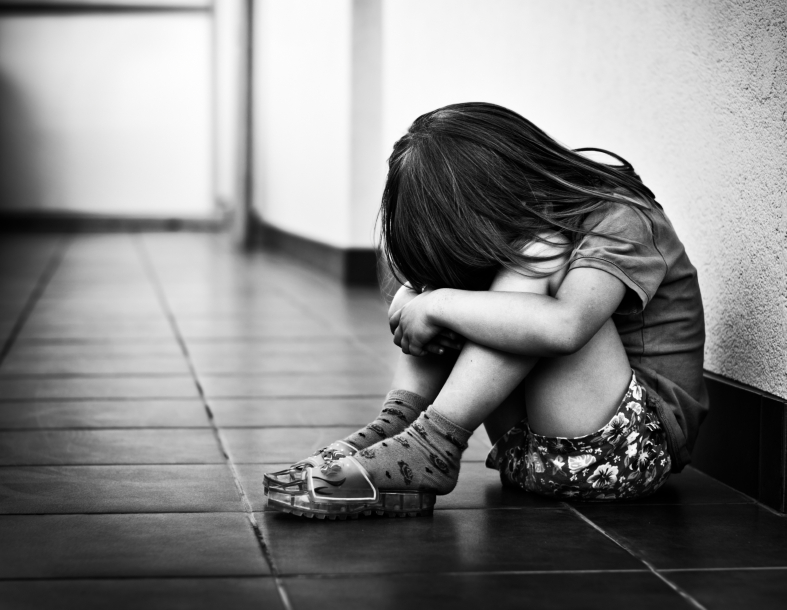Author: Justin Mckibben
Some say that adversity for adolescence can be a trauma that catalyzes their future potential for sustainable mental health. Others would say that we cannot let our traumas define us, and that we have a conscious decision to make our own definitions out of our experiences. The stories we tell ourselves have the meaning we give them, and we can make the same stories into epitaphs of empowerment in a hero’s journey, or we can make them tales of turmoil that set us on a path to destruction.
But what if those experiences actually do a little more than alter our mood, what if they actually alter our brains?
In 1995, physicians Vincent Felitti and Robert Anda launched a large-scale epidemiological study probing the child and adolescent histories of 17,000 subjects with shocking results.
The ACE Study
In this study they compared childhood experiences to later adult health records, and in the process they discovered nearly 2/3 of individuals had encountered one or more Adverse Childhood Experiences (ACEs).
Felitti and Anda coined the term for ACEs to encompass the chronic, unpredictable, and stress-inducing events some children face, including:
- Growing up with a depressed parent
- Growing up with an alcoholic parent
- Losing a parent to divorce or other causes
- Enduring chronichumiliation
- Emotional neglect
- Sexual or physical abuse
The conclusion they came to was that the number of ACEs an individual experienced predicted the amount of medical care they would require as an adult with astounding accuracy, and some of these revelations were quite troubling:
- Individuals who had faced 4 or more categories of ACEs were 2 times likely to be diagnosed with cancer
- For each ACE Score a woman had, her risk of being hospitalized with an autoimmune disease rose by 20%
- Someone with an ACE Score of 4 was 460% more likely to suffer from depressionthan someone with an ACE Score of 0.
- An ACE Score greater than or equal to 6 shortened an individual’s lifespan by almost 20 years
The ACE Study tells us these traumatic childhood events predispose individuals to a variety of chronic conditions in adulthood.
Because Science
Today, in labs across the country, neuroscientists are peering into the once inscrutable brain-body connection, and breaking down, on a biochemical level, exactly how the stress we face when we’re young catches up with us when we’re adults, altering our bodies, our cells, and even our DNA, with startling results.
The more bewildering conclusions oblige us to take a second glance at how emotional and physical pain is interwoven in who we are.
Early Epigenetic Shifts
When thrust repeatedly into stress-inducing situations during childhood our physiological stress reaction shifts into overdrive, and we lose the ability to respond appropriately and effectively to future stressors. Not just over days or months, but decades later.
This is due to gene methylation, in which small chemical markers, or methyl groups, adhere to the genes involved in regulating the stress response. This reaction prevents these genes from doing their jobs. As the function of these genes is altered, the stress response becomes re-set on “high” for life.
With stress-response on “high alert” our bodies promote inflammation and disease. It can also cause us to be more prone to over-react to the everyday stressors of life, creating even more inflammation. In this process we are predisposed to a mass of chronic conditions, including:
- Autoimmune disease
- Heart disease
- Cancer
- Depression
This has all been determined through further research.
Destruction of Default Mode Network
Inside each of our brains, a network of neurocircuitry, commonly called the “default mode network,” stays actively uniting parts of the brain associated with memory and thought integration. This network is always on stand-by, ready to help us to figure out what to do next.
Ruth Lanius is a neuroscientist, professor of psychiatry, and director of the Post-Traumatic Stress Disorder (PTSD) Research Unit at the University of Ontario who stated:
“The dense connectivity in these areas of the brain help us to determine what’s relevant or not relevant, so that we can be ready for whatever our environment is going to ask of us,”
When facing childhood adversity and being habitually pushed into a state of fight-or-flight the default mode network starts to go offline so that it no longer helps to decipher what’s relevant, or what to do next.
According to Lanius, kids who’ve faced early trauma have less connectivity in the default mode network. Their brains don’t seem to enter that healthy stand-by state, and even decades after the initial traumatic patterns they may still have trouble reacting appropriately to the world around them and knowing what is important.
These are just two examples of how the concept of trauma literally rewiring the brain to react differently comes into play, which may seem like a huge let down, but the thing is these changes are not insurmountable obstacles.
Recovery in part means learning to get re-acclimated to the world and learning new coping mechanisms to help us combat the insufficient patterns we develop in our early lives. While ACEs may retrain the brain in unhealthy ways that are detrimental to the body, recovery doesn’t take brain surgery. At the end of the day we all have the capacity to retrain our brains and escape the stories we tell ourselves of our traumas, and build new paths to reconnect our minds with our life’s mission.
Mental illness, trauma and addiction quite often go hand in hand. The trauma we experience can contribute to the worst of our habits, but recovery is possible through effective trauma resolutions. If you or someone you love is struggling with substance abuse or addiction, please call toll free 1-800-951-6135
